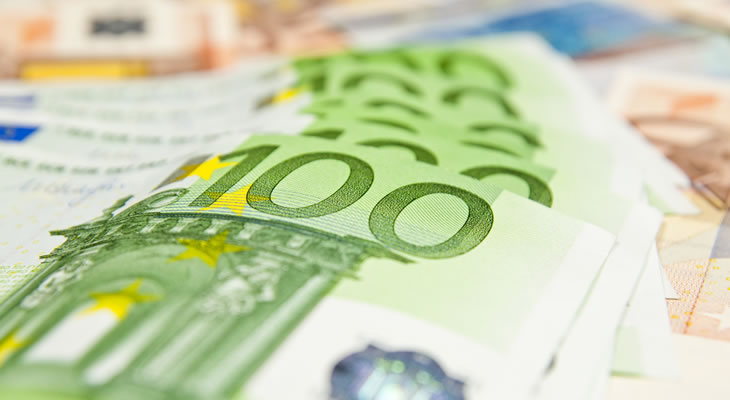Although the Pound Sterling to Euro (GBP/EUR) exchange slumped this morning in response to rising UK house prices it has since benefitted from disappointing Eurozone data.
Euro (EUR) Trended Lower as Spanish Retail Sales and Italian Consumer Confidence Disappointed Forecasts
In a week of thin economic data and low trading volumes the Pound (GBP) was markedly dented in response to a suggestion by Deutsche Bank that the currency was presently the most overvalued in the world. Also battering the British asset has been the heavy rain and flooding afflicting significant areas of the UK, with defences overwhelmed as the rising waters deal substantial damage to properties and infrastructure. Economists have assessed that the economic impact of the storms will knock at least 0.25% off the nation’s GDP in the coming months, a prospect that is unlikely to encourage the Bank of England (BoE) to begin tightening monetary policy in the nearer future.
Although European Central Bank (ECB) policymaker Yves Mersch recently reiterated the more dovish outlook of the central bank, suggesting that further monetary loosening was not off the table, this failed to particularly diminish the bullishness of the Euro (EUR). Nevertheless, after weaker-than-expected Spanish Retail Sales and Italian Consumer Confidence results the GBP/EUR exchange rate began to regain some ground on Tuesday afternoon.
Pound Sterling Currency News: GBP Softens as UK House Prices Accelerate to Worsen Bubble Worries
Additional Pound softness was prompted this morning by the revelation that Nationwide House Prices had grown strongly in December, rising by 4.5% rather than 3.8% on the year. As the continuing acceleration of the UK’s property prices had previously raised concerns amongst traders fearful of a bubble developing within the market this figure did little to encourage demand for Sterling.
However, the GBP/EUR exchange rate soon benefitted from the revelation that the Eurozone’s M3 Money Supply had fallen short of forecast, increasing by 5.1% on the year in November as opposed to the 5.2% expansion pundits had expected. With the currency union’s monetary supply growing at a slower level than previously thought the inflationary outlook of the Eurozone remains muted, offering further incentive to the ECB to loosen policy again in 2016.
GBP/EUR Exchange Rate Forecast: Limited Volatility Predicted ahead of Chinese Manufacturing PMI
The rest of the week is likely to be relatively quiet for the GBP/EUR pairing, with no further economic data set to be released by either the UK or the Eurozone. Should Friday’s Chinese Manufacturing PMI fail to improve as expected or slip further into contraction territory, however, the Euro could see a resurgence as a result of increased safe-haven demand.
Current GBP, EUR Exchange Rates
At time of writing, the Pound Sterling to Euro (GBP/EUR) exchange rate was on an uptrend at 1.3580, while the Euro to Pound Sterling (EUR/GBP) pairing was slumped in the region of 0.7361.


Comments are closed.